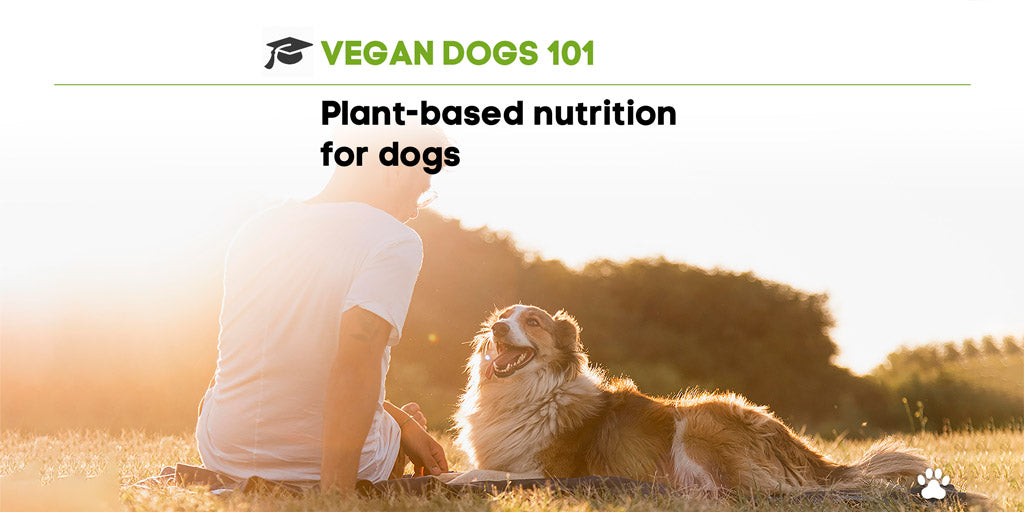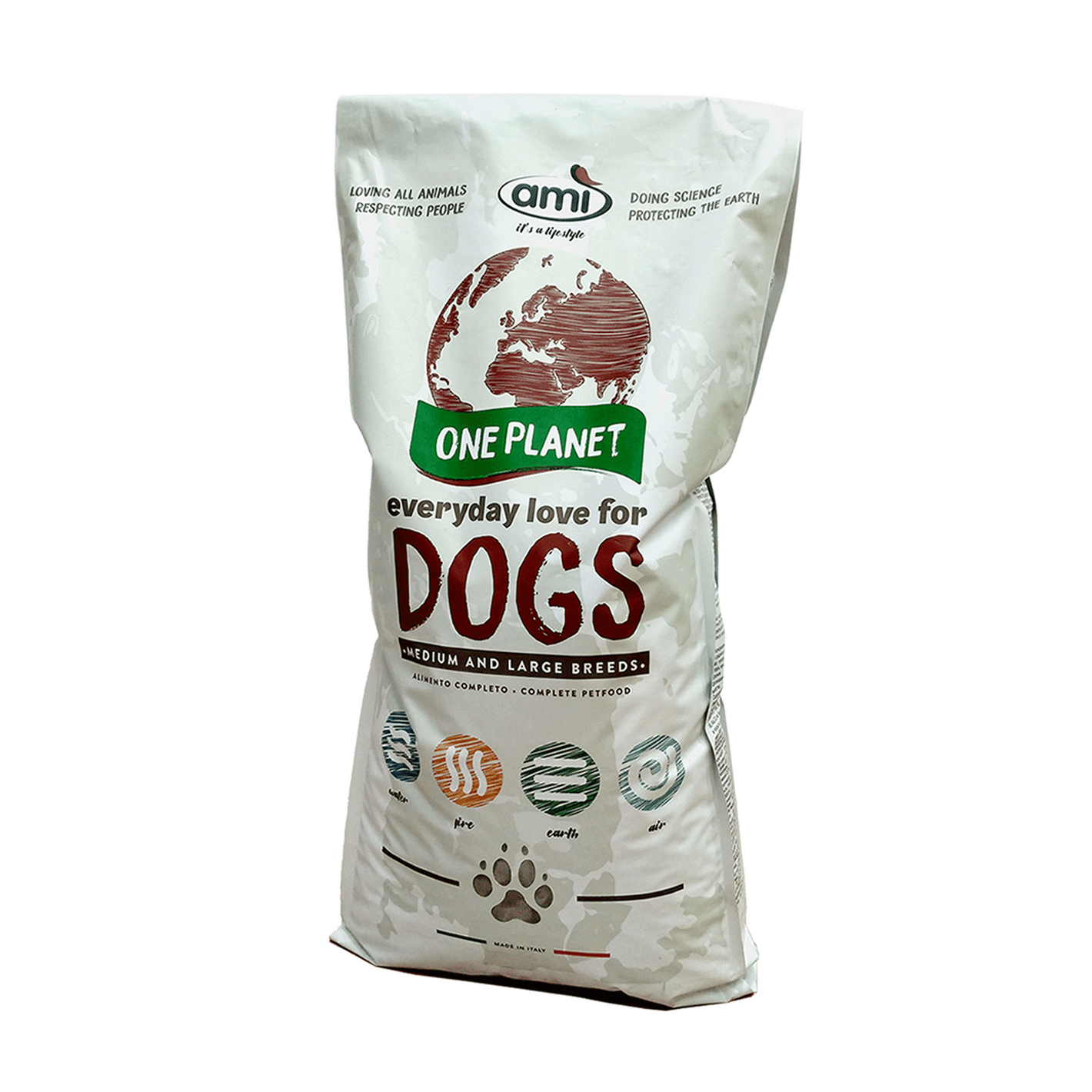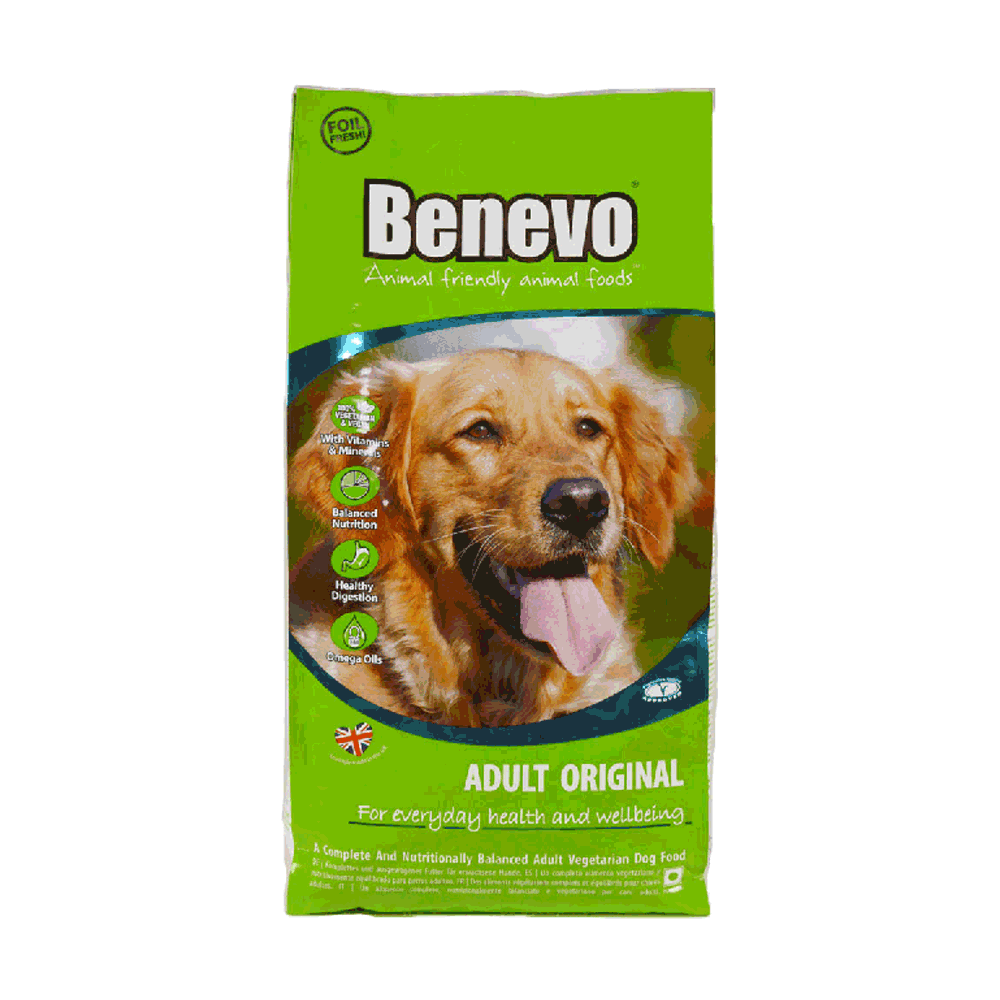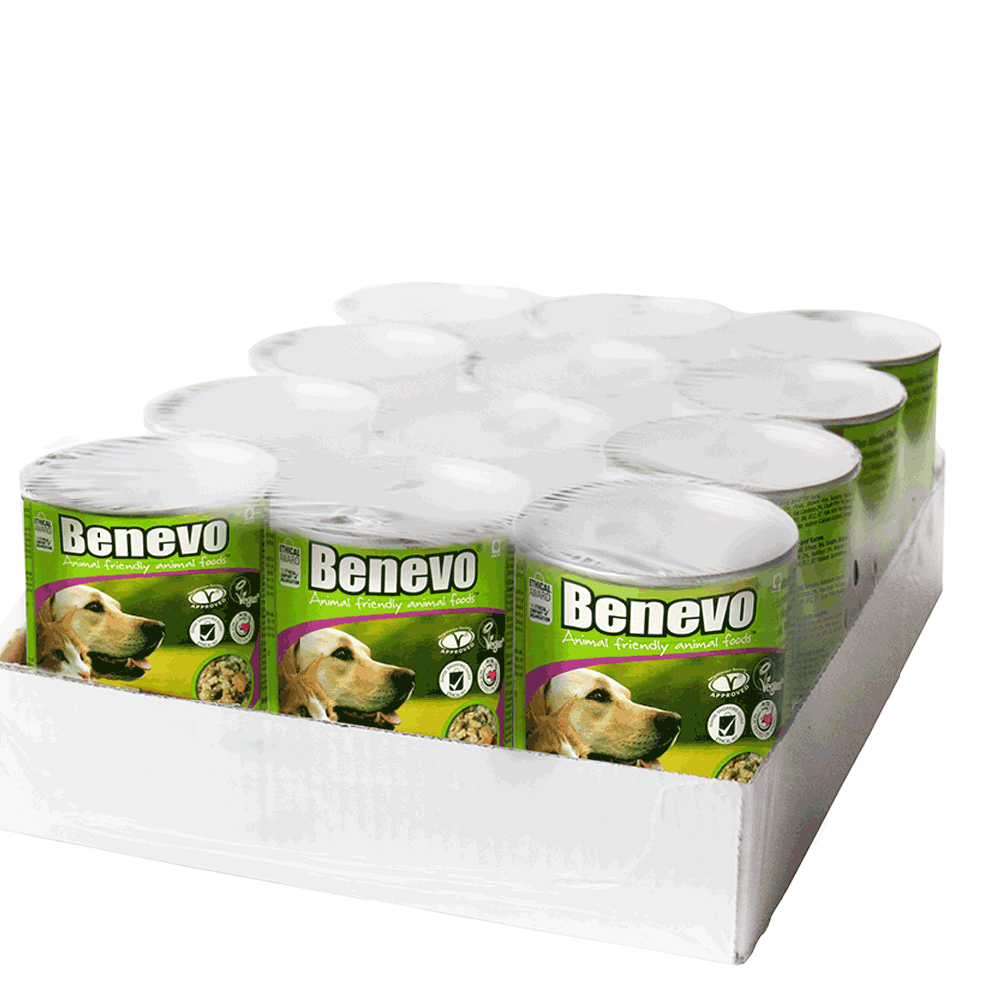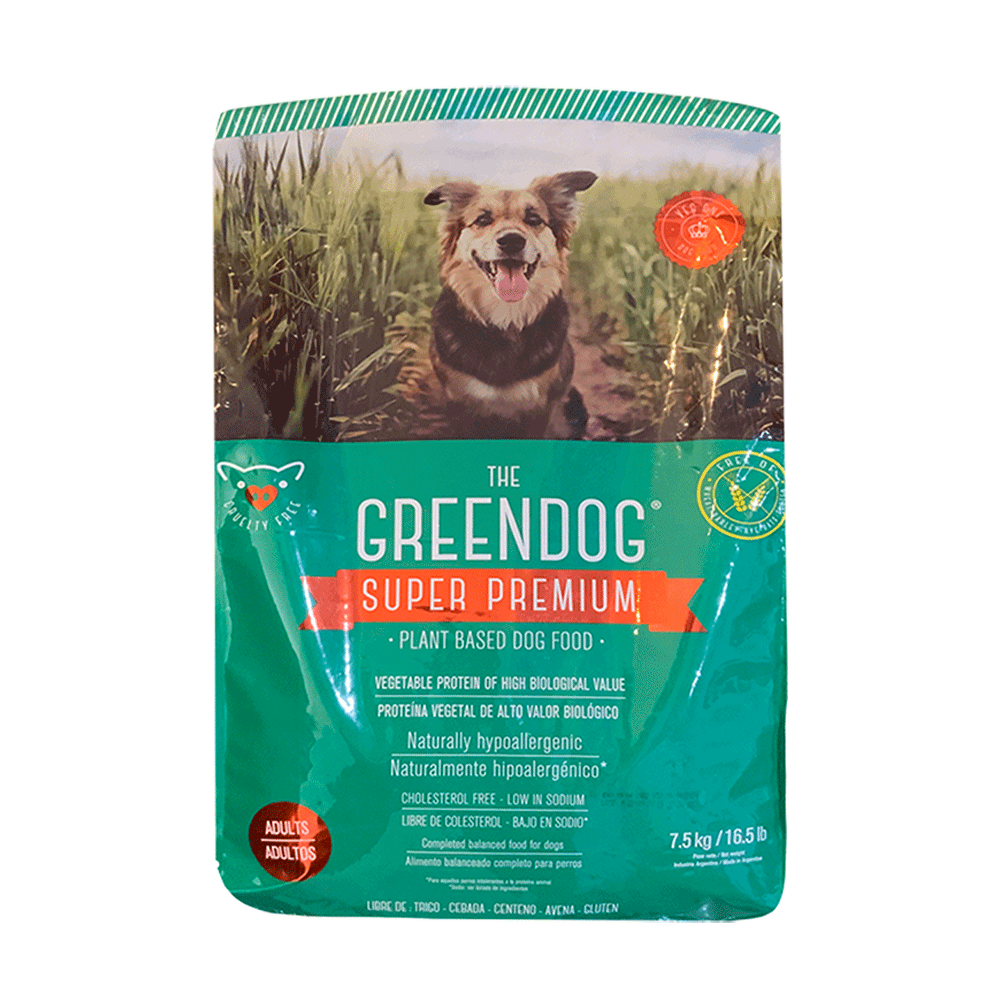HOW 'NATURAL' IS THE PLANT-BASED DIET FOR DOGS?
A common concern about plant-based food for dogs is whether it is “natural”. If dogs evolved from wolves, and wolves preyed on other animals, shouldn't dogs also eat flesh? The following sections discuss this in depth from the evolutionary perspective (dogs evolving as human companions and living on scraps), as well as from conventional diet perspective (conventional meat-based commercial diets being very different from what wolves have consumed in the wild).
DOGS AND WOLVES: OMNIVORES vs. CARNIVORES
Domestic dog (Canis lupus familiaris, Canis familiaris) belongs to the order of Carnivora. Their ancestral counterparts (see image 1) subsisted primarily or entirely on captured prey animals. Accordingly, they have a range of evolutionary adaptations designed to facilitate capture, apprehension, mastication, digestion and absorption of animal tissues. These include senses designed to detect prey animals, a musculoskeletal system designed to facilitate their capture, canine teeth to assist with apprehension, tooth crowns designed for cutting and slicing (rather than grinding of plant materials—which are more prominent in herbivores), and intestinal tracts that are shorter and have different digestive enzymes and intestinal flora than those of herbivores, which require relatively prolonged processing and digestion times.
Image 1. Howling Wolf
However, perhaps as long as 33,000 years ago, dogs were domesticated from wolves (8, 9). These ancestral dogs were partially dependent on human food scraps. Accordingly, behavioral and physiological adaptations to a more varied diet—including plant-based foods—were necessary to allow ancestral dogs to thrive and achieve evolutionary success. Compared to carnivorous wolves, omnivorous dogs have evolved a superior ability to metabolize carbohydrates, and to subsist on a diet lower in protein (10). Biochemical adaptations facilitating this include increased gene expression for pancreatic amylase, the ability to convert maltose to glucose, and increased intestinal glucose uptake (3). Accordingly, the domestic dog is biologically omnivorous (2, 3).
Image 2. Domesticated dog
CONVENTIONAL MEAT-BASED DIETS ARE NOT WHAT WOLVES HAVE EATEN
It is illuminating to compare the ingredients included within commercial meat-based diets with the natural diets of wolves.
Commercial diets commonly include body parts from cows, sheep, pigs, turkeys, ducks, chickens, fish and prawns; some of which have been labelled as unfit for human consumption.
Conventional meat-based commercial can contain significant hazards, and a range of clearly unnatural ingredients. As described previously, these have included potentially pathogenic microorganisms, prion proteins, mycotoxins, antibiotic and hormonal residues, chemical contaminants such as melamine, plastic ear tags, Styrofoam packaging, and heavy metal and organic pollutants within fish.
To encourage domesticated dogs to eat such diets, dry food may be sprayed with a combination of refined animal fat, lard, used restaurant grease, and other oils that are sometimes considered too rancid or inedible for human consumption. These provide the distinctive smell that wafts from a newly-opened packet of kibble. However, deep frying of restaurant food results in rapid oxidation, producing free radicals, trans fatty acids, and other toxins. Repeated use of oil results in the build-up of such contaminants.
Digest may also be utilised. Digest is an industry euphemism for a soup of partially-dissolved intestines, livers, lungs and miscellaneous viscera of chickens (primarily) and other animals, produced using various enzymes and acids. The precise ingredients used are trade secrets, which, in differing combinations, produce varying flavors. Batches considered to taste more like beef can transform a can of miscellaneous body parts into “Beef Stew”, while those considered more “fishy” may result in “Ocean Whitefish” and so on. According to Lewis and colleagues [
83] in
Small Animal Clinical Nutrition, “Digest is probably the most important factor discovered in recent years for enhancing the palatability of dry food for cats and, to a lesser degree, dogs”.
In contrast, the natural diet of wolves consists primarily of animal protein typically sourced from larger prey, such as elk, with the nutrient-dense organs consumed first, followed by muscle tissue.
When wolves kill prey, they gorge as much as possible to prevent consumption by competitors. This is followed by uncertain periods of hunger. In stark contrast, domesticated cats and dogs are fed assorted body parts, usually from animals they would never naturally eat, dispensed from tins or packets at predictable times daily, with kibble sometimes available ad libitum (i.e., always). This bears little resemblance to natural feeding behaviour.
Clearly, there are significant differences between the prey species these animals would naturally consume, and the species routinely included within commercial meat-based diets.
Furthermore, companion animal owners frequently microchip, vaccinate, de-worm, de-flea and de-sex their animal companions, and confine them indoors at night because they correctly believe such steps are recommended to safeguard health.
Clearly, such owners are willing to depart quite radically from “naturalness” when they believe it may protect the health and welfare of their pets. Accordingly, the resistance of such owners to the concept of vegetarian companion animal diets is more likely to stem from ignorance about the hazardous ingredients found within commercial meat-based diets, and about the potential of nutritionally-sound vegetarian diets to safeguard health, than from any deep-seated commitment to “naturalness”.
NUTRIENTS OVER INGREDIENTS
Dogs—and indeed all species—require specific nutrients, rather than specific ingredients. There is no reason why diets comprised entirely of plants, minerals, and synthetically-based ingredients (i.e., vegan diets) cannot meet the necessary palatability, bioavailability, and nutritional requirements of dogs(4).
STUDIES
Study by Semp (2014)(5) – no significant differences were evident in any of the tested parameters, compared to the dogs fed a conventional diet. Lower levels of iron and vitamin B12 in vegan dogs were not observed.
Study by Brown et al. (2009)(6) – It is difficult to envision any companion animals placed under greater physical demands than sprint-racing Siberian Huskies. During sprint races, these dogs run fast through snow, while hauling sleds, for much of the 30-mile race duration; half of the dogs were fed with plant-based diets, while the other half with meat-based diets. All dogs were assessed as being in excellent physical condition.
Study by PETA (1994)(7) – over 80% of dogs maintained on vegan or vegetarian diets for 50% to 100% of their lifetimes were reported as being in good to excellent health (the remaining 20% of dogs had the same health problems as those commonly reported within the normal domesticated dog population).
VETERINARIANS THAT SUPPORT PLANT-BASED DIETS FOR DOGS
USA
- Dr. Armati May
- Dr. Pitcairn
- Dr. Wagner
Canada
- Dr. Sarah Dodd
- Dr. Rob Spooner
- Dr. Kathy Kramer
- Dr. Shulamit Krakauer
- Dr. Radica Raj
- Dr. Manju Arora
- Dr. Gavin Myers
NEXT STEP
Take online assessment to determine if vegan cat food would work for your dog or cat:
TAKE ONLINE ASSESSMENT



